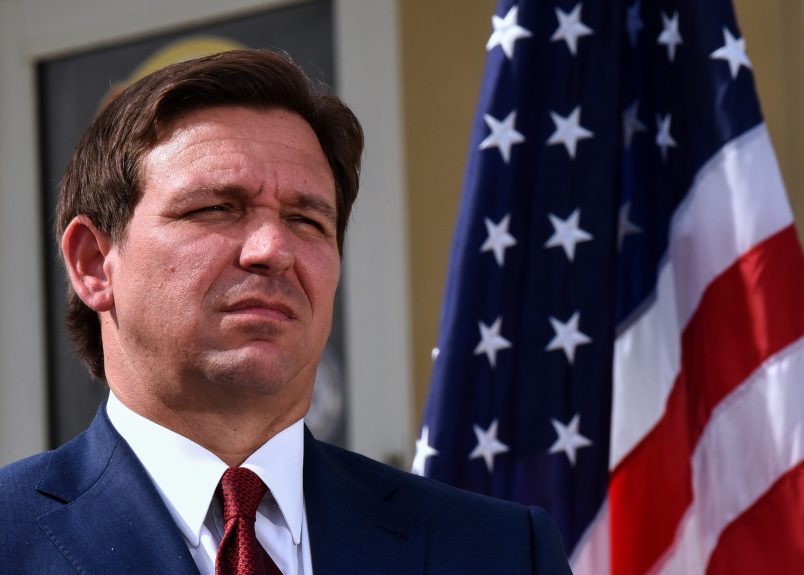Gov. Ron DeSantis (R-FL) tried to get some good press and score points with Donald Trump supporters when he arrested 20 people accused of voter fraud last year, but the stunt hasn’t led to any real convictions. On Friday, Republicans in the state legislature introduced a bill to change that.
The stunt came in the form of the Office of Election Crimes and Security, a sham task force DeSantis launched within the Florida Department of State last August as the Big Lie still lingered following the 2020 election.
The governor admitted at the time that there was no evidence of widespread fraud in Florida, but he still seized on the opportunity to fight against the phantom menace: On Aug. 18, 2022, he announced that the office had already arrested 20 formerly incarcerated residents —mostly Black, mostly in South Florida— who’d been accused of voting illegally. Most of those arrested didn’t know they weren’t allowed to vote and some were told they could vote by election admistrators.
“Today’s actions send a clear signal to those who are thinking about ballot harvesting or fraudulently voting,” he said. “If you commit an elections crime, you will be prosecuted to the fullest extent of the law.”
That last part turned out to be harder to execute. To date, three of the arrestees had their cases dismissed while a fourth took a plea deal to avoid jail time.
All three dismissals occurred because the Office of the Statewide Prosecutor (OSP) didn’t have the jurisdiction to pursue the voters; statewide prosecutors can only go after crimes that occurred in two or more counties. The arrestees had only voted in one each.
Now the state GOP is trying to rectify that through a new bill introduced to the Florida House of Representatives during a special session on Friday.
The bill, sponsored by Miami Republican state Rep. Juan Fernandez-Barquin, would expand the OSP’s jurisdiction, including to allow them to “investigate and prosecute crimes involving voting in an election for a federal or state office,” and seeks to do away with a specific Florida statute requiring that the office only try crimes committed in more than one county.
While the Florida Constitution gives statewide prosecutors the power to investigate crimes across multiple counties, “state law generally provides the office with the ability to prosecute election crimes,” Florida House Speaker Paul Renner said on the House floor. “The legislation will clarify the Office of Statewide Prosecution’s jurisdiction to prosecute crimes involving elections for federal or state offices, and petition activities.”
A state House staff analysis of the bill points directly at the election fraud unit’s botched prosecutions as reason to extend the OSP’s reach after all three defendants filed for a motion to dismiss.
“Each court found that the act of transferring the voter registration information and voted ballot to another judicial circuit were ministerial activities performed by the government, not by one of the defendants,” the analysis reads, “and the act of transferring such registration and ballot to another judicial circuit were not part of the criminal act with which the defendants were charged.”
In the first case dismissal, Miami Circuit Court Judge Milton Hirsch lambasted the OSP for trying to unlawfully extend their jurisdiction.
“His arms spread wider than a dragon’s wings,” he wrote, quoting Shakespeare’s Henry VI. “How much wider even than that does OSP seek to extend its reach?”



